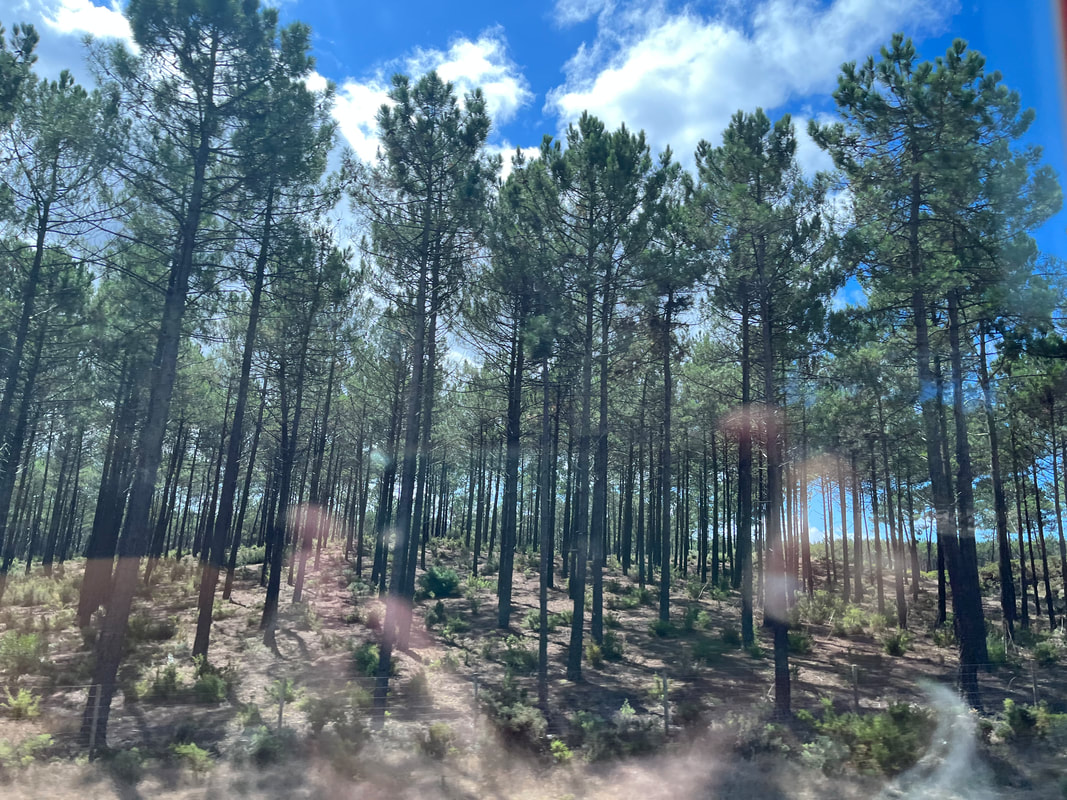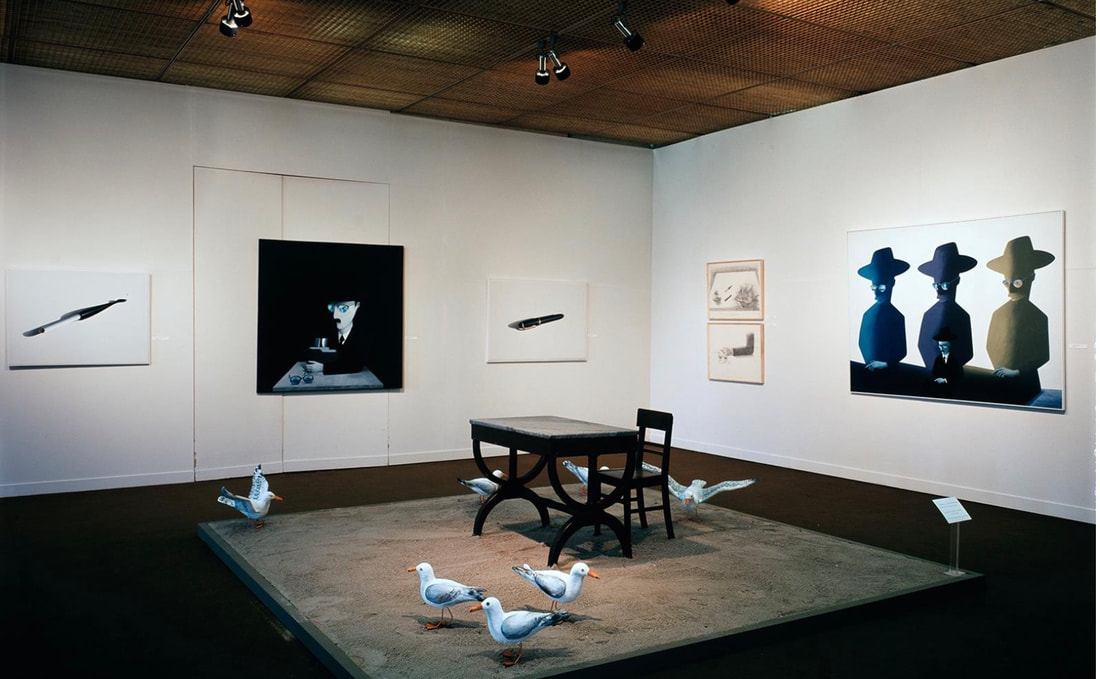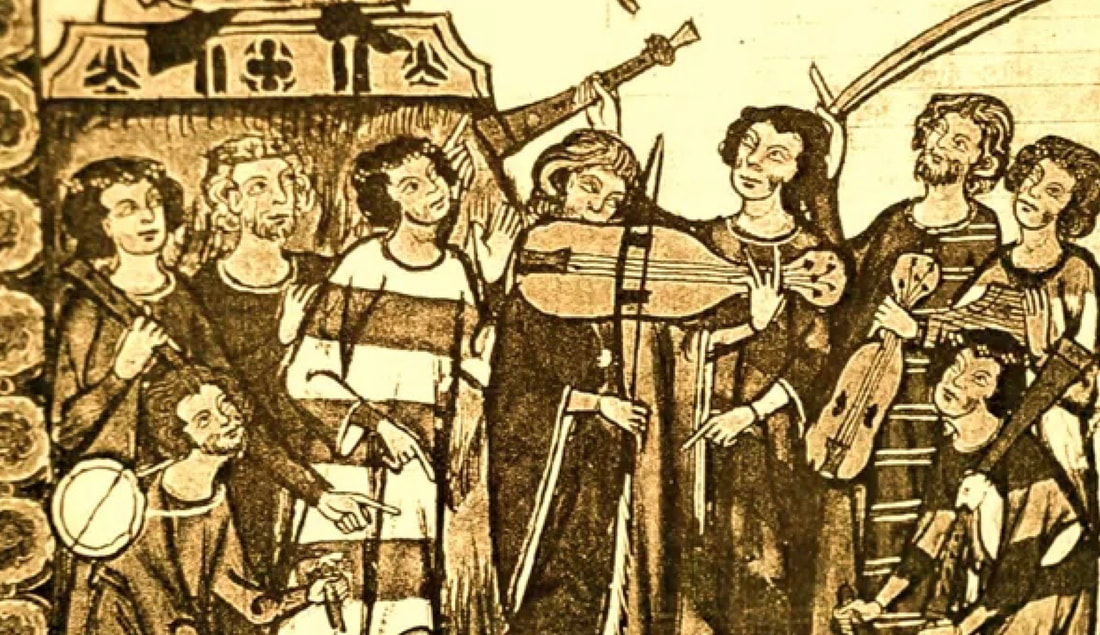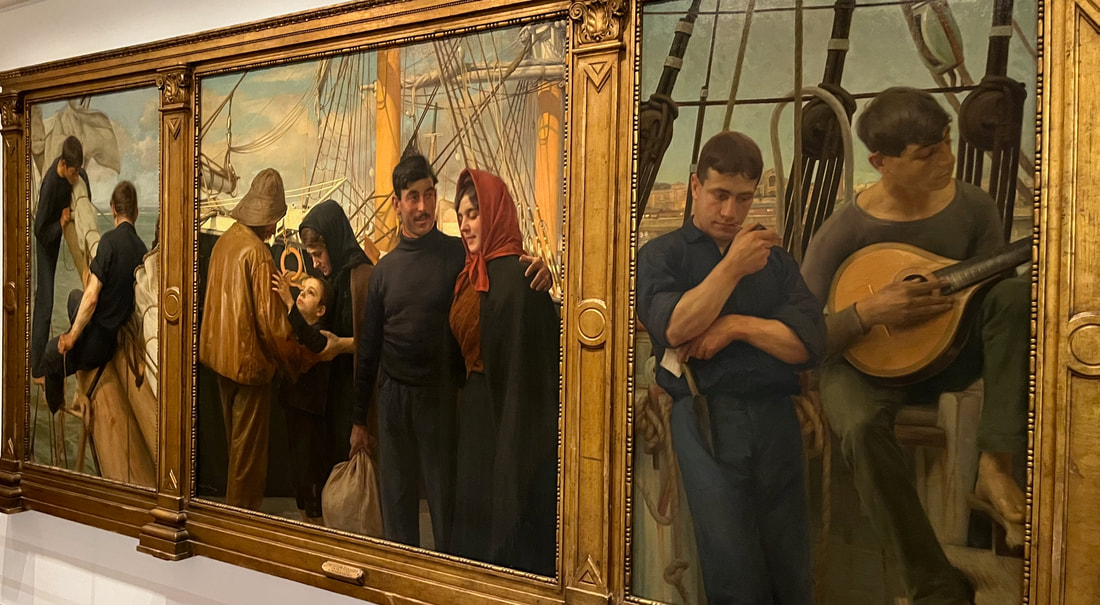|
Sometimes I wake in the middle of the night, a new thought having occurred to me. Last night it pertained to a favorite poem by Fernando Pessoa from his celebrated book Message published just one year before his passing. The book was a tribute to the seafaring monarchs and dons of Portugal illustrating the importance of the sea to both him and the country. My favorite is that dedicated to D. Dinis. I love the imagery but wished to know how it related to King Dinis. I was surprised with what I found. Dom Dinis, son to Alfonso III of Portugal and Monarch for 40 years during the late 13th and early 14th centuries was known as the Farmer King as well as the Poet King. His reign was admired for its industry and excellent administrative reforms which led Portugal’s growth and economic progress. One of the revealing things I learned was that in order to protect the agricultural crops, he enhanced his father’s project of planting pines near the coast of Leira since known as Pinal de Leira. This project had a dual purpose both of protecting the crops from encroaching sand and to produce the lumber to build the many ships needed for commerce and exploration. D. Dinis developed the exportation of goods, both agricultural and of other resources. He was very popular although at times considered somewhat single minded. The pines play an important role in my memory of a trip through the area on the way to Fatima and on to Coimbra. I will not forget the breathtaking scent of sweet pines through the open window of our car as we passed the area around Fatima. It brought to mind images of my mother’s aunt Ethel’s living room with the scent of pine and her pretty little ceramic plates picturing pink Dogwood on the coffee table. I was looking for those pines on a recent trip to Nazare not knowing the history nor realizing that the pines planted by D. Dinis and his father were farther north, closer to Fatima. The news of their location gave me hopes of someday visiting the area and the evocative pine trees again. Alas, I then learned that the forest was 86% destroyed by a wild fire in 2017. There is a reforestation project going on and eventually there will again be that enchanting forest that inspired both D.Dinis and Fernando Pessoa but it may not be in my lifetime. Important to my interest in D. Dinis was his talent as a poet and a troubadour. Pessoa’s poem honoring him begins. (D. Dinis—Message, as translated by me) At night he writes his friend song The planter of ships to be, And he hears within himself a murmuring silence: It is the sound of the pine trees that, like wheat from the Empire, undulate each without awareness of the other A brook, whose song, young and pure, seeks the ocean; And the whisper of the pine forests, the dark swell, It is the present sound of that future sea, It is the voice of the land longing for the sea. From Message D. Dinis Fernando Pessoa Na noite escreve um seu Cantar de Amigo O plantador de naus a haver, E ouve um silêncio múrmuro consigo: É o rumor dos pinhais que, como um trigo De Império, ondulam sem se poder ver. Arroio, esse cantar, jovem e puro, Busca o oceano por achar; E a fala dos pinhais, marulho obscuro, É o som presente desse mar futuro, É a voz da terra ansiando pelo mar. I found one of Dinis’ songs, recorded on YouTube both in medieval Galician/Portuguese and also by the famous Fado singer Amalia Rodriguez. Both are enchanting calls to the sea to reveal the whereabouts of the distant lover. Dinis also was responsible for uniting the country around the national language of Portuguese.
In Pessoa’s poem I envision the forest of pines, ships waiting to be built, and eager seamen longing for the sea. It appears almost mystical. I continue to hear Pessoa’s voice and feel his love for nature as he sings his love song to "O Mar". Antonio Costa Pinheiro in his works honoring the spirit of Pessoa speaks to us of this longing. Young seafaring men leave wives and loved ones for the siren of the sea (Painting in Fado Museum Lisbon)  A sea of Pines as planted by the Farmer King in the Middle Ages Antonio Costa Pinheiro painting of Alberto Cairo's Glasses (Cairo was one of Pessoa's heteronyms)  Exhibit at the Gulbenkian Foundation of works by Antonio Costa Pinheiro honoring the life of Fernando Pessoa
0 Comments
Leave a Reply. |
Christie SeeleyI am a writer who covers film, art, music and culture expanding on my own experience, travels and interests. My goal is to explore and to share, hopefully inspiring my readers to follow my lead and further enrich their lives as well. Archives
March 2024
Categories |



 RSS Feed
RSS Feed